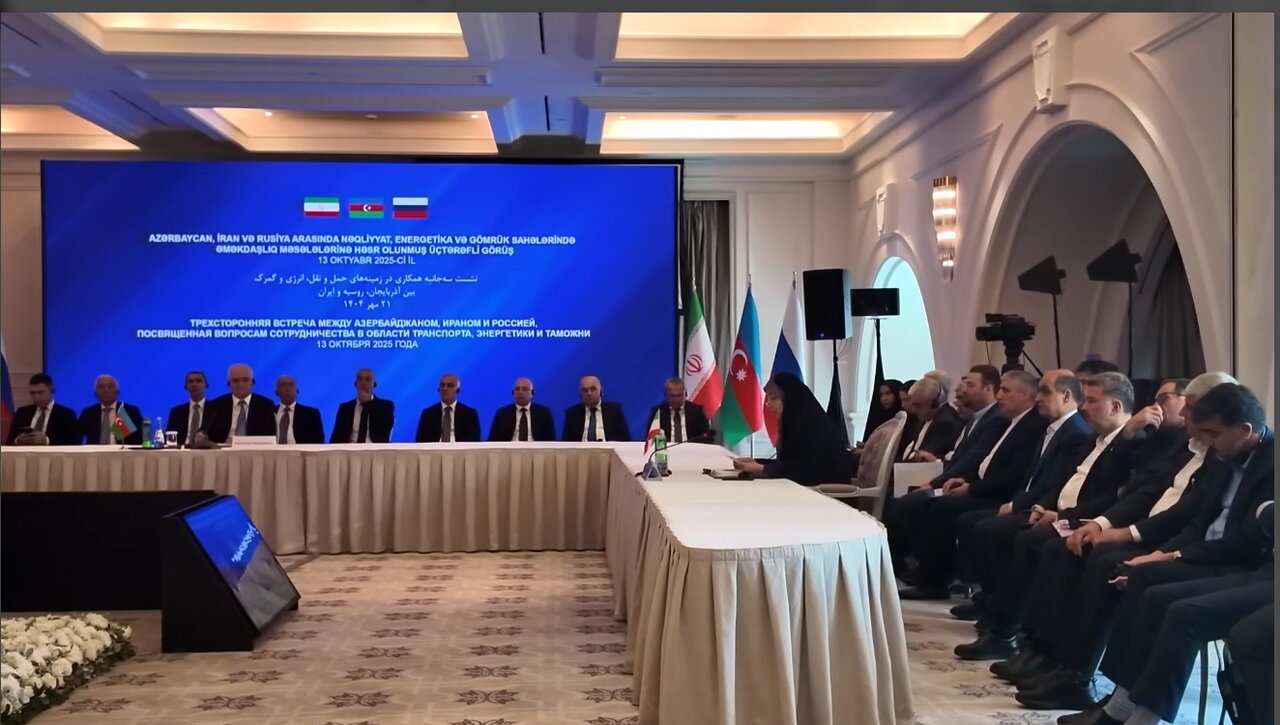INSTC seen as a path to greater regional integration, Iran’s transport minister says

TEHRAN – Iranian Minister of Transport and Urban Development Farzaneh Sadegh highlighted the International North–South Transit Corridor (INSTC) as a key driver of regional cooperation between Iran, Azerbaijan, and Russia, calling it a platform for deeper connectivity in transport, transit, and energy.
Speaking at the trilateral meeting of the three countries in Baku on Monday, Sadegh praised Azerbaijan’s efforts in hosting the event, describing it as a “strategic initiative” to strengthen regional infrastructure and foster economic synergy.
She expressed confidence that the outcomes of the meeting would serve as a roadmap for enhancing transport and energy linkages across the region.
Sadegh underlined the importance of both hardware and software infrastructure development within the INSTC framework, stressing that sustained cooperation was essential to realizing the corridor’s full potential.
Referring to the joint target set in the first Baku trilateral statement, she said the three nations should work toward achieving 15 million tons of cargo transit through the corridor by 2030.
To reach that goal, she proposed drafting an action plan within the next three months to be signed by the leaders of Iran, Azerbaijan, and Russia at their next summit.
On infrastructure progress, the minister noted that construction of the 160-kilometer Rasht–Astara railway is underway with Russian support. About half of the required land has been cleared, and the remaining section will be handed over to the Russian contractor by the end of this year.
Sadegh added that under a bilateral agreement with Azerbaijan, full operation of the Astara rail terminal is expected by the end of 2025.
She also pointed to the ongoing expansion of the 107-kilometer Jolfa–Kalaleh road and the construction of the new Kalaleh–Aghband border bridge, which is set to be completed by the end of this year.
Reducing congestion and delays at border crossings is another key priority, Sadegh said, noting that boosting border capacity and streamlining procedures will bring the three countries closer to their shared transport and trade targets.
EF/MA
